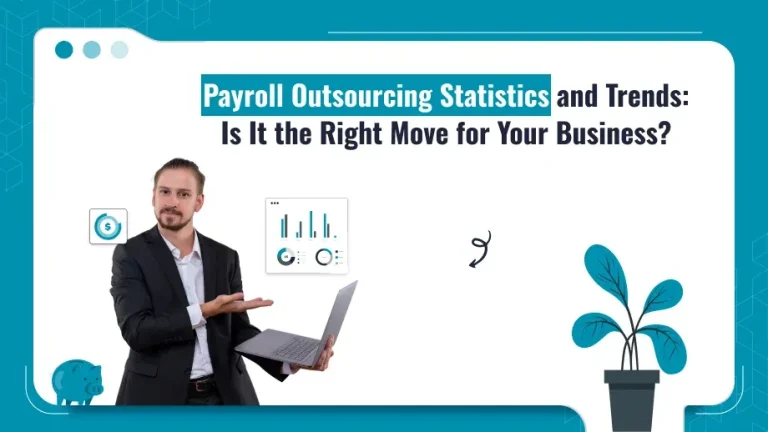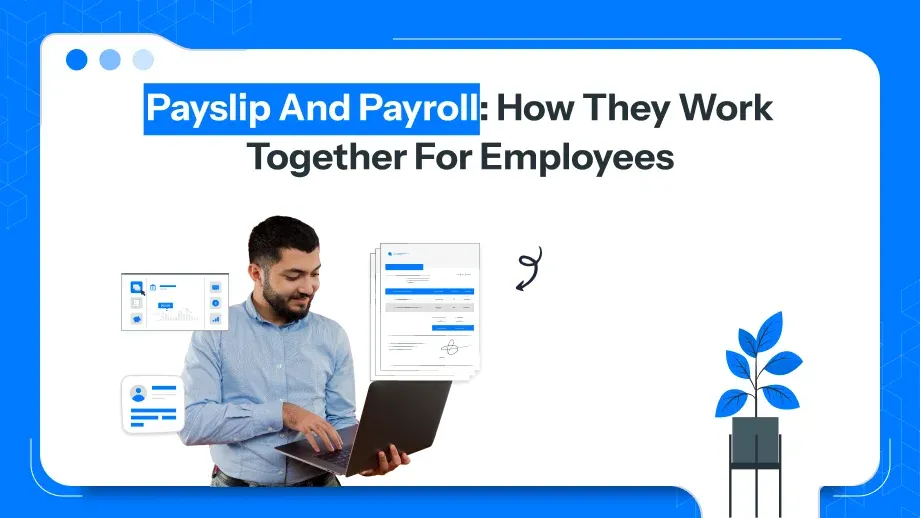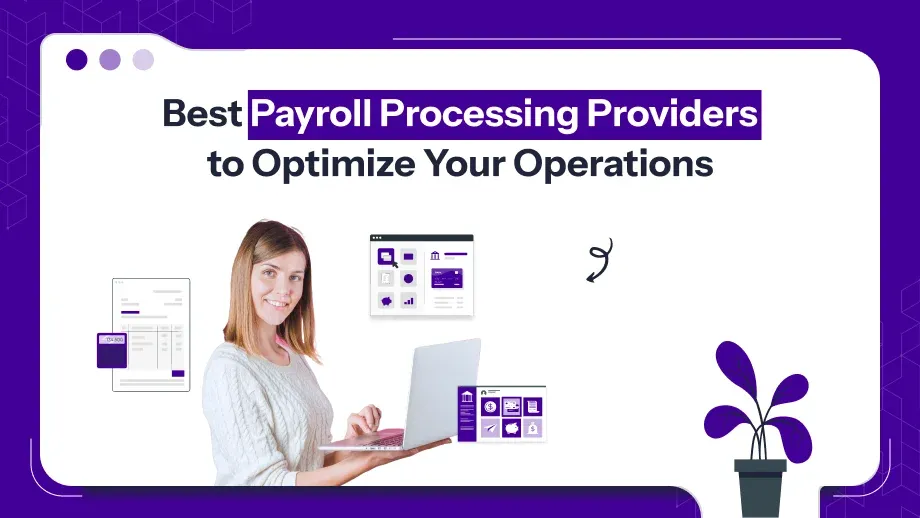The outsourcing of payroll costs between $199 and $249 for each employee per year, based on the services offered and how big the business.
Grab a chance to avail 6 Months of Performance Module for FREE
Book a free demo session & learn more about it!
-
Will customized solution for your needs
-
Empowering users with user-friendly features
-
Driving success across diverse industries, everywhere.
Grab a chance to avail 6 Months of Performance Module for FREE
Book a free demo session & learn more about it!
Superworks
Modern HR Workplace
Your Partner in the entire Employee Life Cycle
From recruitment to retirement manage every stage of employee lifecycle with ease.


Seamless onboarding & offboarding
Automated compliance & payroll
Track performance & engagement
Payroll Outsourcing Statistics and Trends: Is It the Right Move for Your Business?
- payroll outsourcing statistics
- 7 min read
- October 1, 2024
Payroll processing is becoming more complicated because of taxes as well as data security concerns and the rise of global teams, a lot of companies are considering payroll outsourcing as a possible solution. We’ll go over the most recent Payroll Outsourcing Statistics examine both the advantages and disadvantages as well as look at the recent and future trends that affect companies regardless of size.
If you’re a small-scale business or a huge company, this article will aid you in deciding if payroll outsourcing is the best method for you.
Payroll Outsourcing Statistics in 2024
The outsourcing of payroll functions has seen a substantial rise in the last few decades. Here are some of the most important details on outsourcing payroll to know:
- A majority of companies are seeking to outsource a small portion or all of their payroll tasks.
- Payroll outsourcing is predicted to increase by 7.45 percent CAGR until 2033. 7.45 percent CAGR between 2033 and 2033.
- Around 23% of small businesses have a contract out payroll process and are showing a growing pattern in the amount of outsourcing of payroll services that many companies are adopting to simplify their processes and reduce their administrative workload.
- In 2023 in 2023, the IRS received $2.8 billion worth of penalties due to errors in the payroll system. They could be avoided by outsourcing.
The primary reason for this rise in need of lies in the complexity that is growing in payroll processes, driven by an increasing number of remote workers that are compliant and frequent adjustments in tax law. Payroll outsourcing could aid companies with these challenges while also reducing costs.
What Is Payroll Outsourcing?
Payroll outsourcing refers to the hiring of an external company to handle the essential tasks of payroll administration, includes paying wages as well as handling tax withholdings as well as managing deductions for benefits, as well as preparing the required documentation to be submitted to authorities.
In most companies, outsourcing of payroll can let them concentrate on more strategic tasks without having to worry about issues with compliance or errors on the payroll that can result in huge penalties. This is particularly beneficial for those who wish to reduce the time spent on payroll as well as ensure payroll procedures are properly managed and fully compliant with the most recent tax regulations.
Small-scale businesses have the greatest impact from employing payroll outsourcing software that speeds payroll processing and ensures the compliance of employees without hiring extra staff.
67% of Indian companies already using payroll automation!
It’s time to streamline your operations and eliminate errors with Superworks.
Benefits of Outsourcing Payroll
The rise in payroll outsourcing can be attributed to several key benefits:
Cost Savings
A single of the primary benefits of outsourcing payroll is substantial savings in expenses, as it does away with the need to maintain an in-house payroll department to handle the processing of tasks. For small businesses, this can result in significant savings in the cost of labor. An organization that has 50 employees can save as much as 10,000 per year by outsourcing payroll, as opposed to making it internal.
Improved Compliance
Compliance with the tax laws of both state and federal governments is among the biggest issues that companies face. Payroll outsourcing companies are current in tax law and filing deadlines, making sure their customers comply and do not face penalties. In general, the majority of companies that manage their payroll for employees were penalized for non-compliance with the payroll regulations.
Enhanced Efficiency
By outsourcing or payroll outsourcing small business, businesses can leverage advanced payroll software, cloud technology, and AI tools to ensure that payroll runs smoothly without manual errors.
Cons of Outsourcing Payroll
Despite its many advantages, outsourcing payroll isn’t without its challenges. Here are some common drawbacks:
Data Security Concerns
Handing over sensitive payroll information to a third party can raise data security concerns. Companies must ensure that the outsourcing firm has strong cybersecurity measures in place to prevent breaches and protect confidential employee data. This is crucial for businesses looking to avoid the negative consequences of data leaks. Additionally, post-payroll activities for HR professional such as monitoring data access logs, conducting regular security audits, and reviewing compliance with data protection policies to further enhance data security and mitigate risks.
Hidden Costs
While payroll outsourcing can reduce costs for this you can check payroll outsourcing statistics, it may also introduce hidden fees. These can include setup charges, compliance management costs, and additional fees for adding employees or modifying payroll structures. Understanding the full cost structure beforehand is essential to avoid unexpected expenses.
Loss of Control
When payroll is outsourced, businesses lose some control over the day-to-day operations. This can be problematic if quick payroll adjustments are needed, or if employee issues arise. However, with services like Superworks, businesses can maintain better control and flexibility, enabling quicker resolutions without the typical delays associated with outsourcing. This balance can be crucial when evaluating the payroll outsourcing statistics and trends showing how businesses are adapting.
Is Payroll Outsourcing Still Effective?
Despite potential negatives, however, outsourcing payroll is an extremely efficient alternative for a lot of companies until 2024. With the rising use of remote working and the globalization of payroll, and the ever-increasing tax burden, outsourcing payroll could help companies remain in compliance and effectively control payroll.
An increasing number of businesses are using Payroll Processing Software, which means that certain payroll functions are outsourcing while key jobs related to payroll remain within the business. This approach offers a balance of effectiveness and control through the usage of the software Payroll Processing, which allows companies to cut down on their workload while retaining supervision of vital payroll functions.
Do Most Companies Outsource Payroll?
In 2024, an impressive amount of companies will outsource their payroll operations. According to studies, 23% of small-sized businesses currently outsource their payroll, and more than 69% of companies are contemplating outsourcing the majority, or even all, of their pay functions.
This results from the need for cost efficiency, compliance requirements, and a deficiency of in-house payroll experts.
Larger businesses with more complicated payroll requirements benefit from outsourcing, enabling them to focus on the most critical tasks while ensuring compliance across multiple countries.
What Are the Latest Outsourcing Trends?
Cloud-Based Payroll Solutions
The cloud technology is continuing to revolutionize the way that payroll outsourcing is conducted. With cloud-based payroll systems, businesses are able to easily connect and control payroll information anywhere and at any time, providing flexibility to remote workforces.
AI and Automation
AI technology is becoming increasingly implemented into payroll systems to improve the accuracy and efficiency of payroll by identifying mistakes and ensuring accurate payroll calculations, drastically reducing the requirement of manual input.
Gig Economy Influence
As more companies employ contractors and freelancers Payroll systems must be flexible to accommodate a variety of structure and pay plans. The result is the development of specialist Global Payroll services that are able to meet the demands for the gig economy by giving companies the ability to handle various payment arrangements across different areas and different types of workers.
Global Outsourcing Trends
The global market for payroll outsourcing is growing quickly, fueled by the growing demand coming from North America and Asia-Pacific.
For North America, companies are searching for affordable solutions for managing more complex payroll processes. In Asia-Pacific countries, such as India are becoming key players in the outsourcing sector due to their low-cost and a skilled workforce.
Key global trends include:
- Increased demand for cloud payroll solutions
- It grow importance of data security and in outsourcing deal
- Expansion of payroll outsourcing in emerging markets
Conclusion
In the global payroll outsourcing market is expected to grow substantially in the coming years. Outsourcing remains a highly effective way to manage payroll, especially for businesses with complex payroll needs.
Payroll outsourcing statistics show clear advantages for small and large businesses alike, from cost savings to increased efficiency and compliance. While it’s not without its risks, payroll outsourcing continues to be a smart choice for companies looking to streamline operations and focus on core business functions.
FAQs
How much is spent on outsourced payroll?
What is the percentage of companies outsourcing payroll?
About 23% of small companies and 69% of larger enterprises employ contract workers to employees.
What are the most important trends in Payroll Outsourcing that you need to know about by 2024?
The major developments are the application of cloud-based systems to pay and the utilization of AI or automation as well as the creation of payroll systems that are designed to adapt to the changing requirements of a gig economy.
Is payroll outsourcing a viable option for small-sized enterprises?
Yes, outsourcing payroll could be especially beneficial for small-sized companies. By outsourcing, small companies can save money by employing in-house payroll employees as well as avoid issues with compliance and concentrate on their core business. Smaller businesses can benefit from the flexibility and ease of payroll solutions. Pay only for the services they require according to the needs of their employees.



